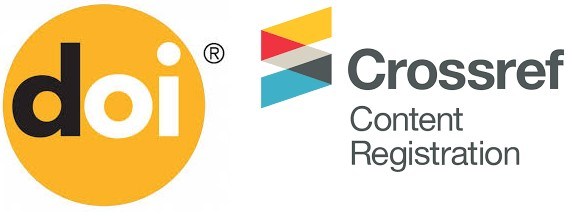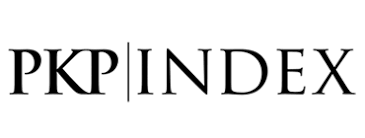Perbandingan Tingkat Kepatuhan Pengobatan Pasien Epilepsi antara Monoterapi dan Politerapi di Poliklinik Saraf RSUP Dr. M. Djamil Padang
Abstract
Background: Epilepsy is one of the most common chronic neurological disorders affecting people worldwide. People with epilepsy have higher mortality rate than general population. Medication adherence is predictor for epilepsy outcome. Number of medication is one of contributing factors to therapy adherence. Aims: to determine antiepileptic drug adherence between monotherapy and polytherapy at Neurology Clinic Dr. M. Djamil Hospital. Methods: This study conducted at Neurology Clinic Dr. M. Djamil Hospital from May to June 2019. Medication adherence was assessed by using Morisky Medication Adherence Scale (MMAS) 8. Data was analyzed and level of significance was if p value ≤ 0.05. Result: We recruited 30 participants which consist of 14 (46.7%) female and 16 (53.5%) male. Median of age 31 (13-77) and 22 (73.3%) patients have high educational level. From 30 patient, 14 (46.7%) in monotherapy and 16 (53.3%) in polytherapy. Patient with high medication adherence 4 (13.3%), moderate 7 (23.3%) and poor 17 (56.7%). Statistical analysis showed no differences on medication adherence between monotherapy and polytherapy (p=0.79). Conclusion: There are no differences on medication adherence between monotherapy and polytherapy at Neurology Clinic Dr. M. Djamil Hospital.
Keywords
Full Text:
PDFReferences
World Health Organization. Epilepsy. Fact Sheet No. 999. WHO Fact Sheet [serial online]. Juni 2019 (diunduh 26 Juni 2019). Tersedia dari: http://www.who.int/mediacentre/factsheets/fs999/en/.
Malek N, Heath CA, Greene J. A review of medication adherence in people with epilepsy. Acta Neurol Scand. 2016; 1-9.
Getnet A, Woldeyohannes SM, Bekana Y, Mekonen T, Fekadu W, Menberu M, et al.. Antiepileptic drug nonadherence and its predictors among people with epilepsy. Behavioral Neurology.2016; 1-6.
Hakim L. Hubungan antara kepatuhan minum obat pada penderita epilepsi dengan kejadian remisi. 2006. Jogjakarta : Universitas Gadjah Mada.
Kwan P, Schacter SC, Brodie MJ. Drug resistant epilepsy. The New England Journal of Medicine. 2011:365;919-926.
Davis KL, Candrili SD, Edin HM. Prevalence and cost cost of nonadherence with antiepileptic drugs in an adult managed care population. Epilepsia. 2008;49(3);446-454.
Chapman SCE, Home R, Chater A, Hukins D, Smithson WH. Patients’s perspectives on antiepileptic medication : relationships between beliefs about medicines and adherence among patients with epilepsy in UK primary care. Epilepsy and Behaviour. 2014;31;312-320.
Sarhan EM, Walker MC, Selai C. Evidence for efficacy of combination of antiepileptic drug in treatment of epilepsy. J Neurol Res. 2015;5(6):267-276
Edi IGM. Faktor-faktor yang mempengaruhi kepatuhan pasien pada pengobatan: telaah sistematik. Medicamento.2015;1(1).
Kardas P, Lawek P, Matyjaszczyk M. Determinants of patient adherence: a review of systematic reviews. 2013.Frontiers in Pharmacology;4; 91.
Gurumurthy R, Chandra K, Sarma GRK. An evaluation of factors affecting adherence to antiepileptic drugs in patients with epilepsy : a cross-sectional study. Singapore Med J. 2017;58(2):98-102.
Fadare JO, Sunmonu TA, Bankole IA, Adeyeke KA, Abubakar SA. Medication adherenceand adverse effect profile of antiepileptic drugs in Nigerian patients with epilepsy. Neurodegener Dis Manag.2018.
Sweileh WM, Ihbesheh MS, Jarar IS, Taha AS, Sawalha AF, ZyoudSH, et al. Self-reported medication adherence and treatment satisfaction in patients with epilepsy. Epilepsy Behav 2011; 21:301-5.
Glauser T, Menachem EB, Bourgeois B, Cnaan A, Guerreiro C, Kalviainen R, et al. Updated ILAE evidence review of antiepileptic drug efficacy and effectiveness as initial monotherapy for epileptic seizures and syndromes. Epilepsia.2013;54(3);551-563.
Bautista RE, Rundle-Gonzalez V. Effects of antiepileptic drug characteristics on medication adherence. Epilepsy Behav. 2012;23:437–441.
Harimanana A, Clavel S, Chivorakul P, Perez F, Preux PM, Berennes H. Associated factors with adherence to antiepileptic drug in the capital city of Lao PDR. Epilepsy Res. 2013; 104:158-66.
Liu J, Liu Z, Ding H, Yang X. Adherence to treatment and influencing factors in a sample of Chinese epilepsy patients. Epileptic Disord. 2013; 15:289-94.
Johnbull OS, Farounbi B, Adeleye AO, Ogunrin O, Uche AP. Evaluation of factors influencing medication adherence in patients with epilepsy in rural communities of Kaduna State, Nigeria. Neurosci Med. 2011; 2:299-305.
Niriayo YL, Mamo A, Gidey K, Demoz GT. Medication belief and adherence among patients with epilepsy. Behavioral Neurology. 2019:1-7.
E. Sabaté, Adherence to Long-Term Therapies: Evidence for Action, World Health Organization, 2003
DOI: https://doi.org/10.33854/heme.v3i2.461
Refbacks
- There are currently no refbacks.
 Health and Medical Journal This work is licensed under a Creative Commons Attribution-NonCommercial-ShareAlike 4.0 International License.
Health and Medical Journal This work is licensed under a Creative Commons Attribution-NonCommercial-ShareAlike 4.0 International License.











